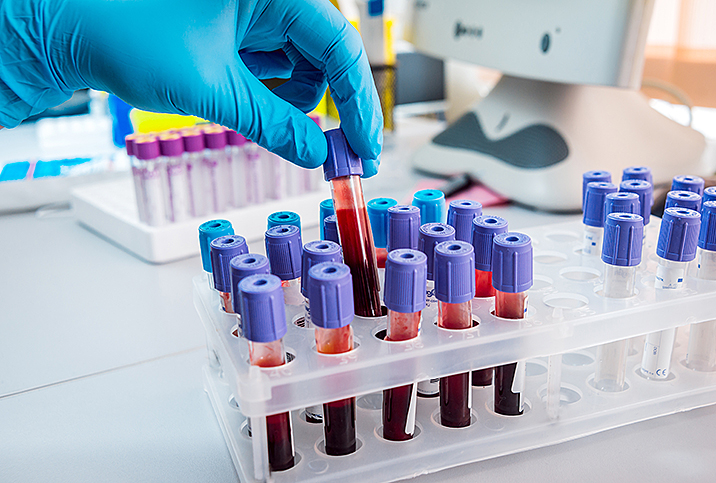Inflammaging: A Common Denominator in Aging and Disease

Emerging science has identified a critical player in the science of aging—inflammation, which is suspected to contribute to the process. A little-known blood marker called CHIP (clonal hematopoiesis of indeterminate potential) is one way to measure the problem.
According to Salvatore Viscomi, M.D., chief medical officer of GoodCell, some of humanity's most common diseases are driven by an inflammatory condition called clonal hematopoiesis, a fancy term for the replication of mutated cells in the blood or bone marrow. Too many mutations lead to diseases we used to brush off as normal byproducts of "aging." Fortunately, it's now possible to measure the extent of clonal hematopoiesis using a blood marker called CHIP. Although CHIP is still relatively unknown, some people see it as a game-changer in the world of preventive medicine.
What exactly is inflammation?
Inflammation is our immune system's reaction to an infection or injury. Under normal circumstances, inflammation is a transient response that helps us heal. However, when inflammation climbs for longer than it should (chronic inflammation), it can lead to autoimmune diseases, heart disease, diabetes and cancer.
A better understanding of inflammation helps scratch the surface of CHIP's promise for early detection of disease since it turns out most age-related diseases share inflammatory pathogenesis—how a disease develops. Hence the term "inflammaging."
Where does inflammation come from?
We know that lifestyle choices such as smoking or indoor tanning cause premature aging. These unhealthy habits damage our DNA by creating mutations, some of which are pro-inflammatory (meaning they favor high levels of inflammation in our bodies). As we learn more about genetics, scientists can start to pinpoint how specific mutations affect inflammation levels and how fast we'll age.
Aside from our acquired genetic mutations, we also inherit a set of genetic mutations from our parents.
When inflammation climbs for longer than it should (chronic inflammation), it can lead to autoimmune diseases, heart disease, diabetes and cancer.
"Looking at our genetic makeup is important for understanding our predisposition for developing diseases," Viscomi said. "Our genetic makeup is not only what we inherit from our parents [germline], but also what kind of damage we accumulate in our lives. I'm interested in measuring the acquired types of accumulated genetic changes in certain blood cells."
Mutations in stem cells
All cells are vulnerable to DNA damage, but mutations in our stem cells are especially problematic. Stem cells are primarily found in the bone marrow and are considered our body's raw materials. Since stem cells provide the foundation of mature cells throughout the body, mutations they carry can spread and grow out of control, which can happen during clonal hematopoiesis.
Stem cell mutations have the potential to amplify genetic problems, promoting a self-perpetuating cycle of high inflammation. CHIP occurs when a mutated stem cell multiplies or repeatedly clones itself. Higher levels of CHIP mean more inflammation and, eventually, higher rates of disease.
Measuring longevity in our blood
Given what we know about inflammaging, CHIP may pose a vital threat to aging gracefully. If low-grade inflammation is the true driver of various health problems, pro-inflammatory CHIP may mark the early stages of preventable diseases.
"CHIP is an indicator of longevity in our blood cells," Viscomi said. "There's a process behind the scenes that until recently was unknown and that we can now measure. It impacts so many issues, such as cardiovascular health and the development of cancers. Things that produce mutations—radiation, pollution, toxins and smoking, for example—may promote CHIP. In the future, we may be able to control this process through targeted anti-inflammatory therapy."
The future of medicine
The ability to measure CHIP is a groundbreaking achievement for preventive medicine. While more research is needed to determine how CHIP impacts real-world health outcomes, it's clear major contributions to the future of medicine could come from an increased understanding of human genetics.
"People with CHIP have elevated levels of specific proteins called cytokines that promote inflammation throughout our bodies," Viscomi explained. "In fact, people with CHIP have been shown to have four times the risk of cardiovascular events, 13 times the risk of blood cancers and a 40 percent higher overall mortality of all causes.
"While initially felt to be a process in older people, we find that CHIP can occur in younger people as well," Viscomi added. "This group is at higher risk for early heart attacks. In addition, they're more susceptible to viral infections and autoimmune diseases that tend to be severe and resistant to treatment compared to people with the same conditions who don't have CHIP. We now have the ability to track the development of CHIP over time. We can see who doesn't have CHIP, who has low levels of cells with these mutations—what we call 'pre-CHIP'—and how quickly CHIP is changing to where it becomes a risk factor."
'By looking at every channel of data, including genetics—and not just inherited but acquired changes—and numerous biomarkers, we can treat patients proactively instead of reactively.'
Medical technology may bring us to a point where we treat diseases before they happen—think "Minority Report'' at hospitals. Viscomi believes the future of healthcare lies in precision medicine. No longer will we rely on one-size-fits-all solutions. Instead of treating health conditions after they develop, humanity is making strides to avoid disease in the first place.
"By looking at every channel of data, including genetics—and not just inherited but acquired changes—and numerous biomarkers, we can treat patients proactively instead of reactively," Viscomi said. "The future isn't just about living longer, but better—understanding our risks and mitigating them before we face the consequences of disease."


















